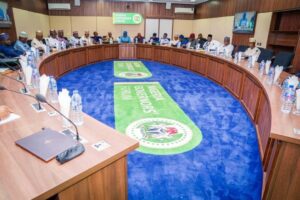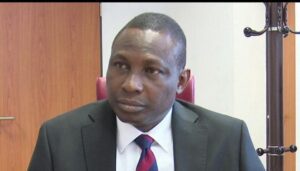
River Kaduna dredging project mitigated flooding – Official
The Kaduna Capital Territory Authority (KCTA) says the dredging of River Kaduna has helped in checking flooding in Kaduna metropolis and its environs.
Hafiz Bayero, Administrator, KCTA, told newsmen in Kaduna that the dredging became necessary as the river could not contain the mass of water flow, resulting in flooding in the past years.
He said the initiative was yielding the desired result as Kaduna metropolis and its environs recorded few cases of flooding in 2022.
The Administrator said dredging of rivers around flood-prone communities would be a continuous process in order to avert flooding in the state.
He mentioned the flood-prone communities as Hayin Danmani, Kamazou, Kabala West, Rafin guza and other flood plains within Kaduna North, Kaduna South, Chikun and Igabi Local Government Areas.
Also, Dr Haira’u Umar, Director, Municipal Waste Management, KCTA, said that the agency’s proactive environmental sensitisation programmes had enhanced the sanitary habits of residents.
”The result of this positive impact is that the state experienced only flash flooding during the year,” he said.
On his part, Mr. Yusuf Muazu, a Director with Kaduna State Ministry for Environment, said the state was collaborating with stakeholders to check flooding.
He said the ministry, in collaboration with Nigeria Erosion and Watershed Management Project (NEWMAP), had installed Automated Flood Early Warning System and Weather Station as part of efforts to mitigate flooding.
Muazu stated that the stations were installed in Kaduna North, Kaduna South and Chikun LGAs to build resilience to disasters.
On its part, Kano State Government said it had made adequate emergency response plan to mitigate flooding as the rainy season drew closer.
Executive Secretary, Kano State Emergency Management Agency (SEMA), Dr Saleh Jili, told newsmen in Kano that the agency would meet with stakeholders to map out strategies.
He said SEMA would embark on sensitisation campaigns across the 44 local government areas of the state, to encourage the clearing of water ways to minimise flooding.
Jili also assured that the Agency had set aside, funds and relief materials to provide the needs of victims should disasters occur.
He explained that last year, flooding and windstorm claimed the lives of 23 persons, destroying 20,399 houses in 25 Local Government Areas of the state.
“In addition, 20 persons were injured, 14, 364 farms and N2.1 billion worth of properties were destroyed”, he claimed.
On his part, the Territorial Coordinator of National Emergency Management Agency (NEMA) in Kano, Dr Nuradeen Abdullahi, called for strict enforcement of environmental regulations to mitigate flooding.
He also advised residents to avoid using substandard building materials that could not stand the test of time, noting that such materials were responsible for collapse of buildings whenever windstorm or flooding occurred.
Also, Kano State Commissioner for Environment, Dr Kabiru Getso, said the state had adopted proactive mechanisms to mitigate risk and disaster across the state.
He called on members of the public to adhere to building codes and environmental regulations, clear blocked water ways, and desists from dumping garbage in drains.
Meanwhile, Katsina State Government, World Bank and French Development Agency, have constructed 2.5km road from Danja to Bazanga to Nahuce in Danja Local Government Area.
According to the Permanent Secretary, State Ministry for Works, Alhaji Abubakar Gene, the project will aid smooth flow of traffic and address some environmental challenges.
Also, the Ward Head of Inwala Jarbango in the state, Alhaji Muhmmad Musa, advised residents to desist from dumping Refuse in culverts.
Musa explained that such habit was partly responsible for flooding and erosion.
Reports state that the authorities in Kaduna, Kano and Katsina States, were responding to enquirers on their level of preparedness to address the challenges of flooding this year.
This is against the backdrop of prediction by NIMET that the rainy season might commence early in some states of the Federation this year.



